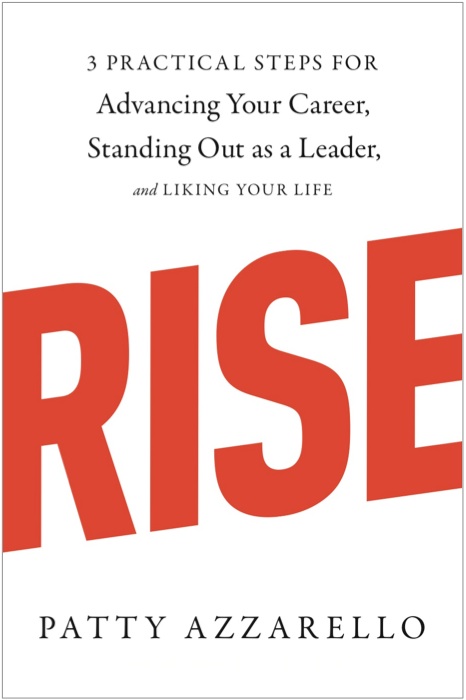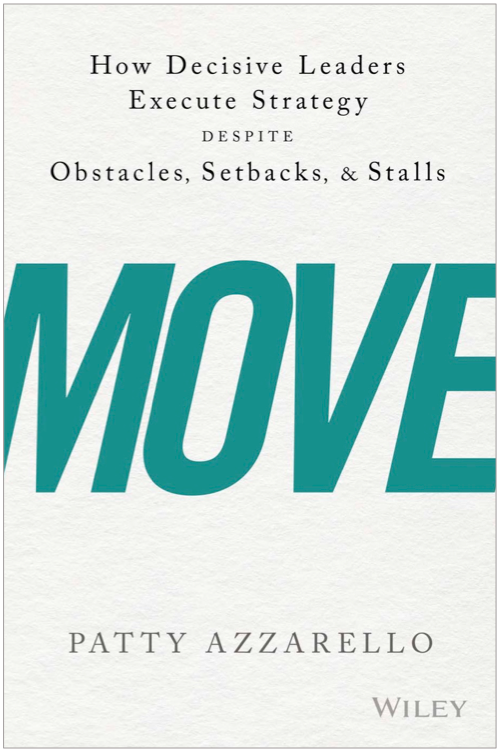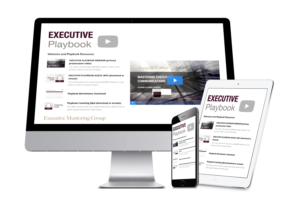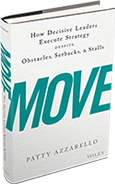What is your positive online footprint?
The topic of how you appear online when people do a search came up in one of the recent member discussions in my Executive Mentoring Group.
It was an interesting conversation that quickly went from preventing risk by not posting “unflattering” stuff to…
“What can and should you be proactively posting to your benefit… to create a positive impression?”
How do you show up in a search?
When a potential employer looks you up online what will they find? Here are some of the common possibilities:
1. Nothing
This is not great. You will have missed an opportunity to distinguish yourself and possibly appear to be out of touch, especially if your peers are doing a good job with their online presence.
2. Potentially damaging stuff
This can cover a very wide range, from too-personal, inappropriate, overly political, angry rants, demeaning humor, complaining, to all kinds of negativity.
There is plenty of this out there! And I think that a lot of people opt out of social media because they don’t want to become a part of that. But it’s not necessary to opt out entirely to avoid the negativity. Just don’t add to it!
3. Potentially helpful and impressive stuff
This is the part I want to talk about today. Because there is a lot of positive stuff you can put out there to build your brand and create a strong positive impression vs. being invisible or negative.
Have a plan
If you take the time to think about what your own strategy and rules are for each online platform, it allows you to be more consistent, avoid the dark side, and also build up a positive image.
Here are a few of my own rules as an example.
1: Not Negative
If I post on social media I first do a negativity check…
- Am I complaining?
- Am I ranting?
- Is this negative?
- Is this divisive?
- Am I putting someone down?
Certainly, like any human,
I may have thoughts that fit into some of these categories, but you will never see me post them.
For me it’s good to have this check because once in a while I see or hear about something funny, and I think, “That would be fun to share”.
But then when I put it through this filter, I realize that even though it made me laugh…by sharing it, I would be encouraging others to laugh at the expense of another person. (And it also makes me realize it was probably unkind to laugh in the first place.)
So those things stop with me.
Even if it seems an insignificant thing in the life of a stranger, if it’s unkind, it’s unkind.
So by consistently applying this rule, if someone searches my posts, I do not ever appear as putting other people down, complaining, or ranting.
3: Interesting, or entertaining to OTHERS
My next filter is:
- Is this interesting/amusing to others or only interesting to me?
- Am I showing off?
- Is this boring?
Even if the idea is not something negative, I always want to additionally make sure it is of value in some way to the consumers of this idea, before I post it.
I use this rule on all social media platforms where I participate.
That way, if people search my social media their reaction will range from neutral to interested to amused, but they will not find a lot of random crap that is only of value to me.
3: Useful, valuable
Here is the category where you have a chance to do something truly positive and valuable.
- Share what you know
- Help others learn
- Build on good, useful ideas
- Collect and curate insights
Create posts that help others. Write articles. Share your expertise. Share things you create.
One of my brand promises is to be useful and to never waste your time.
So one of my additional filters for my blog articles, beyond my rules for social media, is that they have to pass all the tests above, but also, they must be specifically USEFUL — not just amusing, or interesting.
Every once in a while I have an insight that I think I want to share and I write an article about it. But then I put it through the USEFUL test and I realize that as insight on its own, without action, it is not useful enough. So I don’t publish it.
I decide if I can add some useful, practical action steps to the insight, and if I can, I do a re-write. Otherwise, you don’t see it.
Having these filters allows me to be consistent.
Building a positive brand online
Now instead of worrying about what negative or damaging or too-personal things someone might find…
Imagine a potential employer searching you online and finding positive, helpful, amusing things in your social media.
They would think,”Hmmm…I’m impressed with this person. This is someone I want to meet.”
Imagine them finding some articles that you have published that demonstrate your capabilities and point of view — much more than you could do through a resume.
Your Blog:
Consider starting a blog–particularly if you are launching a business or looking for a job.
Being able to point people to a place where you can share ideas (articles, photos, videos), where they can get to see your capabilities and unique expertise, and understand what you’re are about, creates momentum and builds credibility.
Your Website:
If you are thinking of starting a business, create a preliminary website for it.
Share the website. Give people an idea of what your business would look like and how you would offer your products or services.
If you just ask for feedback on an idea, you miss a big opportunity to position yourself and your idea in a strong tangible way to not only get feedback, but build excitement and momentum for your idea.
Consider the online world and social media as a powerful way to position and market yourself.
When you are consistent and thoughtful about what you put out there, it can give you a big advantage.
If you are proactive about putting positive stuff out there, it can build a highly compelling and credible image of you that will support what you are trying to do in the real world.
If you are not already a member…
Optimizing Your Online Presence
If you’d like some more ideas on this, there is are two Executive Playbooks in my Executive Mentoring Group that can help,
Networking Online and Offline
Marketing and Positioning Yourself
The playbooks include a streaming webinar and a workbook with tools, templates and scripts to help you put the ideas into action.
These Executive Playbooks are part of my Executive Mentoring Group, which is a professional development program that offers Executive Playbooks, other online resources, and LIVE COACHING from me.
You can explore for one month for free, and if you decide to stick around you’ll get a new Executive Playbook each month on an important topic on Business Leadership or Executive Career Development.

Patty Azzarello
Patty is available to speak at your company, annual meeting, or customer event. She can also deliver a custom workshop on Leadership or Strategy Execution for your leadership team. Contact Patty.
Or if you would like some personal help on your own professional development, check out her Executive Mentoring Group. It’s filled with insights, resources and support to build your executive confidence, advance your career, and includes direct mentoring from Patty.
MORE ABOUT PATTY:
Patty Azzarello is an executive, best-selling author, speaker and CEO/Business Advisor. She became the youngest general manager at HP at the age of 33, ran a billion dollar software business at 35 and became a CEO for the first time at 38 (all without turning into a self-centered, miserable jerk)





